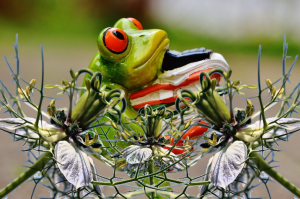What If Your Stress Is Cumin?
While there is value is discussing stress and stress reduction strategies, that value is limited until we identify specific stressors. Dr. Marjorie Hass, President of Rhodes College doesn’t talk about stress in the general way that I have too often discussed stress with colleagues, students, and friends. The problem with such a generalized approach, according to Hass, is that “’Stress’ is almost always a cover story—a way of not noticing or not saying what I am actually feeling (p. 58)” [emphasis added].
I tell my writing students that general statements without specific examples are meaningless. Yet, how often have I been part of a generalized conversation where I make the general statement that I am feeling generalized stress and the other person responds that they, too, are feeling generalized stress and then we both mutter platitudes while nodding our heads in mutual misunderstanding. I might feel better knowing that I am not alone in my stress, but I do not feel any less stressed. It is only when I identify and name the root causes of my stress that I can build strategies for change.
A month or so ago, I told my therapist that this semester has been more stressful than I thought it would be and that the stress was manifesting itself in a similar way as when I eat food to which I am sensitive. It was a good analogy to describe what I was feeling but because I am extremely diligent about what I eat, I ignored my feelings which resulted in my doing little to relieve the stress.
Because of the nature of food sensitivities, I periodically have blood work done to monitor any changes. Last week, when I received the results of my latest blood work, I discovered that while chicken remained verboten, I could, after two years, consume beef again. But I also learned that I had developed a sensitivity to cumin; one of my favorite spices. The reason that this semester has seemed more stressful than expected was cumin.
I had fallen into the generalized stress trap identified by Hass by allowing a vague term to cover over the details of bad feelings which allowed me “to sweep them all together without thinking much about any of them (p. 58).” Ironically, I had identified the likely root of my problem—eating something to which I was sensitive—but I didn’t think much about it.
Unfortunately, it is often easier to continue to live with stress instead of taking corrective actions that might be difficult to implement. Cumin might seem easier to deal with than some other types of stressors because I can “easily” remove it from my diet. However, removing stressors is no easy task.
Four days after I learned that I couldn’t eat cumin, I was asked if I wanted to go on a date to a Mexican restaurant. It is difficult to say, “Yes, I do want to go out with you to a Mexican restaurant but I cannot consume food with cumin (or lactose or gluten or tomatoes or jalapenos or brown rice or…).” It would be tempting to simply reply “Yes” while silently deciding that “I won’t get that sick.”
In order to change, we must realistically confront ourselves so that we can notice and say what we are actually feeling. Once, I asked my therapist how others in a similar stressful situation lived with a particular problem. He replied “They don’t.” Change is difficult and sometimes requires more effort than we can muster at the moment. It would take me several months before I was ready to remove the metaphorical cumin from my diet and then more than a year to implement the necessary changes to remove that particular stressor from my life. But nothing could be done until I was willing to notice and say what I was actually feeling about the situation.
General discussions of self-care have some merit and can lead to positive changes. But talking about generalized stress provides little lasting comfort. Marjorie Hass is correct. Until we can name the cumin, we cannot even take the initial steps to remove it from our diet.
–Steven L. Berg, PhD
Works Cited
Hass, Marjorie. A Leadership Guide to Women in Higher Education. Johns Hopkins University Press, 2021.

This work is licensed under a Creative Commons Attribution-NonCommercial-ShareAlike 4.0 International License.

LEAVE A COMMENT